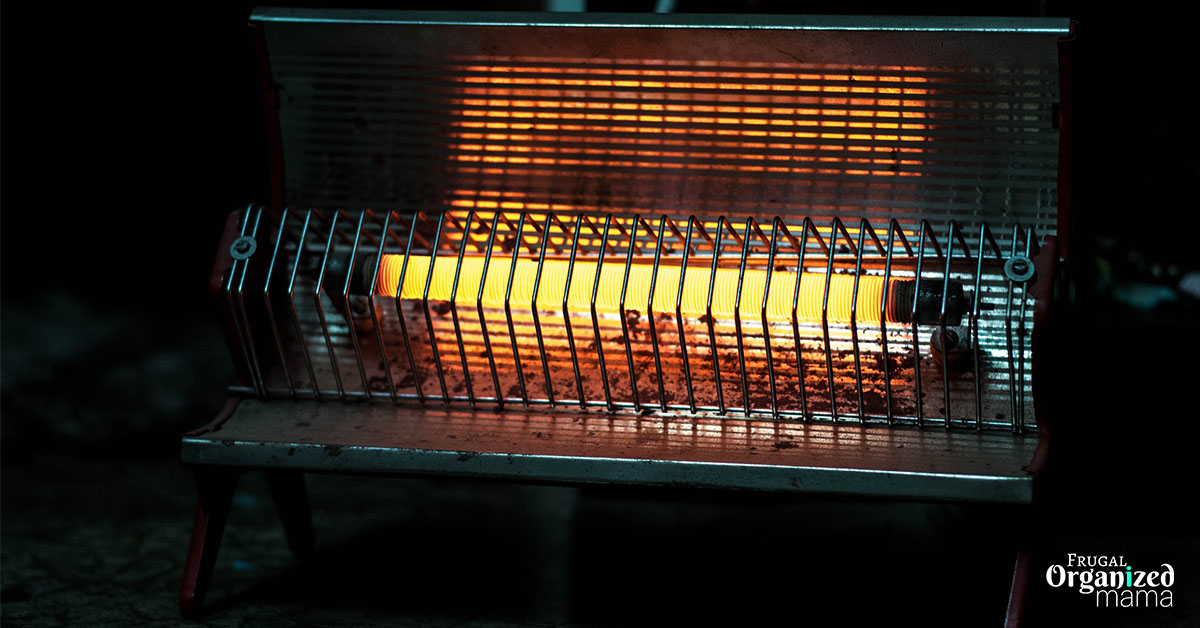Save Money Whilst Still Heating your House!

Come winter, many houses are freezing! So here are some tips to get you house feeling warmer as cheap as possible!
Getting Dry
The first step to saving money on heating the house is to make sure that it's dry.
Consider this:
You climb into bed at night, and pull the duvet up over you. It's damp and it sucks all of the heat from your body. You feel cold despite the house being warm....
The next day, you get that duvet and take it straight outside the washing line! You dry it all day and finish it off in the dryer. Climbing into bed that night, you pull that fluffy, dry duvet up over you - it insulates you and keeps you snuggly and warm all night long.
This is what happens when your house is damp. It doesn't insulate your house properly, it leaves the place feeling damp and cold even if the house is warm, it still feels cold.
So step one, get it dry! It can be worth doing this on a weekend that is warm (when someone else can have your young children if you have a baby in the house) but otherwise any dry day will do. The idea is to reduce the humidity inside.
It is better to do this on a day where there is not lots of humidity in the air outside, so look for a day where it isn't raining, the ground isn't sopping wet from recent rain and that. Each time that you are doing this counts to dry out the house fully, you could do it for an hour a day five days a week, cracking a few windows every day, or opening up the house and drying it for five hours on the weekend. The more you can dry out the house (the dryer it is, the less condensation you'll see), the easier it will be to heat it.
So open up those windows, open up those doors. If you have an electric fan, now is the time to use it to push the air through the house. If you have an extraction fan in the bathroom or the kitchen, turn it on. The heat pump can be used on the fan setting and any electric heaters can be used on the air only setting. The idea is to get as much movement as possible - borrow your neighbours or friends fans if you can and your house is really damp.
Once your house is dry, you just need to maintain it. That might be cracking the windows, trying it on the weekend and using a dehumidifier if you live in a really cold or wet area.
Keep That Heat In!
Open up your house once the sun or stronger light starts coming in. Once the sun goes down in the afternoon, shut the curtains to keep the warmth in.
Electric Kiwi?
Elecric Kiwi user? Make sure you are using that free hour as effectively as possible! Here is a cheat sheet so you can run around the house for an hour a day doing all the things that will save you money, save you time and make it easy and a stressfree game.
Heat Pump?
Heat pump? Make sure to clean the filters - even up to every two weeks in winter - Here's how to do that! Get a service every year or two, use it on a heating setting rather than an auto setting.
Flick Power?
If you use a power company like Flick, make sure you are using the power effectively - i.e. make sure the power is being used on the night rates (even using timers etc), you are using as little as possible on the peak rate and you check to make sure it is still the cheapest option when you have to heat the house in winter.
Wood fire?
Wood fire? Make sure to get a fan that you can put beside it so that you can move the heat around the room. You can pick these up cheap at a secondhand shop, Trade Me or Facebook marketplace.
No economical heating options?
One potential option is to buy a portable heat pump. These are more expensive for sure, but you can put these through a cat door or a window (ensure that it is still lockable and airtight obviously). If you don't have good heating options, a potential way of helping would be to buy (or gather) a lot of secondhand heaters, switch to Electric Kiwi, and heat the house like crazy for one hour a day - just make sure to use only one heater per power point or you'll blow the fuse! Non-flued gas heaters (like the mobile ones) are not a safe option. You need to ensure that you have ventilation with these as the gases they put out make the house damp and are dangerous. They are still a great backup though if you live in an area that has power cuts and want a non-electric form of heating for those times you need it.
The biggest thing is get your house dry. It's so hard when power is costs are high and the house is cold! If you have young children in the house, the ideal temp is 16-20, so if you are struggling to achieve this, please talk to your child's doctor, or plunket to see if there is any supports you can lean on.
I can't wait to hear how you get on and how much you can improve your power bill AND the temperature of your house!
If you are struggling to pay some overdue bills along with these winter power bills, here's a guide to help you work through them.

[…] your heating cost! These ideas, from making sure your house is dried out to using your power effectively will […]